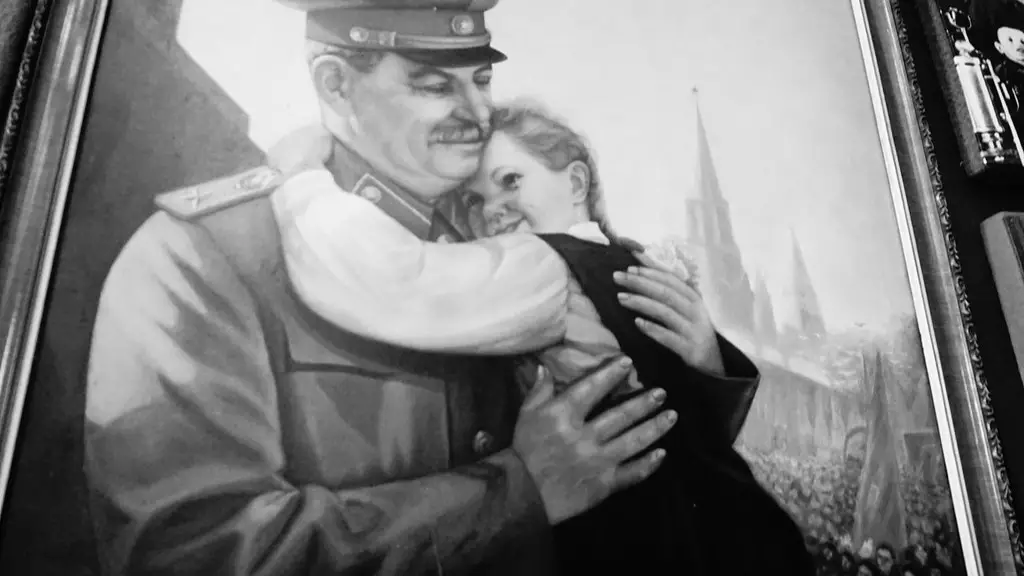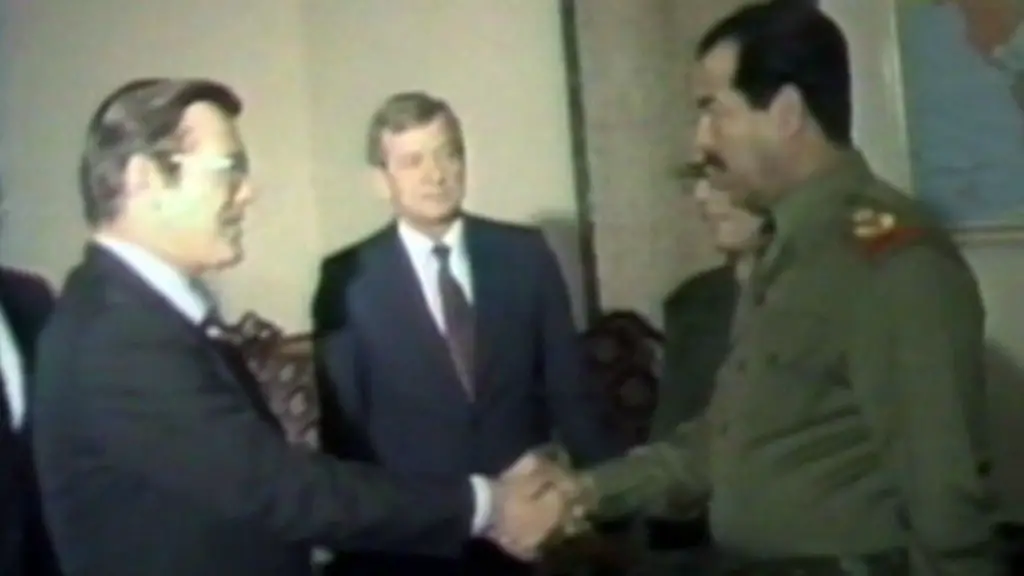Joseph Stalin is one of the most controversial leaders in history. Some believe that he was an effective leader who brought the Soviet Union to power, while others believe that his reign was characterized by terror and oppression. Stalin was born in 1878 in Georgia, which was then part of the Russian Empire. He rose to power in the Soviet Union after the death of Vladimir Lenin in 1924. Under Stalin’s rule, the Soviet Union underwent a rapid industrialization and collectivization program, which led to the country becoming a major world power. However, Stalin’s regime was also marked by widespread human rights abuses, including the forced deportation of millions of people, the forced collectivization of agriculture, and the Great Purge, in which millions of people were executed or sent to labor camps. Stalin died in 1953.
There is no definitive answer to this question. Some historians argue that Stalin was an effective leader who was able to bring about economic and social reform in the Soviet Union. Others argue that Stalin’s leadership was characterized by oppressive and brutal tactics that ultimately led to the deaths of millions of people.
What kind of leader was Joseph Stalin?
Josef Stalin was one of the most important and controversial leaders in history. He held power as General Secretary of the Communist Party of the Soviet Union (1922–1952) and Chairman of the Council of Ministers of the Soviet Union (1941–1953). Initially governing the country as part of a collective leadership, he consolidated power to become a dictator by the 1930s. Stalin was known for his brutal methods of rule, and for his role in leading the Soviet Union through its transformation from an agrarian society to a major industrial power. He also played a key role in the victory of the Allies in World War II. Stalin’s legacy is still a matter of debate; while he is praised by some as a great leader, others consider him a dictator responsible for the deaths of millions.
Stalin played a leading role in the 1907 Tiflis bank robbery and the subsequent planning and execution of the operation. He was also appointed leader of the People’s Commissariat of Nationalities following the October Revolution, and held military positions during the Russian Civil War and the Polish-Soviet War.
What was Stalin’s greatest accomplishment
Stalin’s industrialization of the Soviet Union was a massive undertaking that transformed a largely agrarian country into a leading industrial power. It was a remarkable accomplishment, made all the more impressive by the fact that it was achieved in a relatively short period of time. Stalin’s industrialization drive not only modernized the Soviet Union, but also made it a major force on the global stage.
The Soviet press was very favorable towards Stalin, always praising him and calling him things like “Great”, “Beloved”, “Bold”, “Wise”, “Inspirer”, and “Genius”. They portrayed him as a strong yet caring father figure, with the Soviet populace as his “children”. This was likely due to the fact that Stalin was in control of the media and could easily silence any dissent.
What effects did Stalin’s rule have on the Soviet Union?
In the early 1930s, Stalin launched a series of radical economic policies that completely overhauled the industrial and agricultural face of the Soviet Union. This became known as the Great Turn, as Russia turned away from the mixed-economic type New Economic Policy (NEP) and adopted a planned economy. The Great Turn resulted in rapid industrialization and collectivization of agriculture, as well as a massive increase in state control over the economy. While the policies were successful in achieving their goals, they also resulted in widespread human suffering and millions of deaths.
The 1930s were a time of great upheaval in the Soviet Union. Stalin forced quick industrialisation and collectivisation that coincided with mass starvation, the imprisonment of millions of people in labour camps, and the ‘Great Purge’ of the intelligentsia, the government and the armed forces. This period was one of the most brutal in Soviet history, and left a lasting legacy of repression and terror.
What type of leader was Stalin quizlet?
Joseph Stalin was one of the most ruthless and tyrannical leaders in history. He ruled the Soviet Union with an iron fist, using terror and repression to eliminate any potential opposition. Millions of people were killed or imprisoned during his reign of terror, making him one of the most brutal dictators of the 20th century.
Stalin’s economic policies were a disaster for the Soviet Union. The policies led to a sharp decline in population and a small amount of economic growth. The policies were so badly managed under the Soviet government that any growth was fairly small in comparison to the targets set out. Consequently, Stalin’s economic policies must be considered to have been a disastrous period of Soviet economic policy.
What best describes Joseph Stalin and his
Stalin was a ruthless dictator who led the Soviet Union after Lenin’s death. Under Stalin, the Soviet Union became a powerful force in the world, but at the cost of millions of lives. Stalin was paranoid and frequently purged his own government of anyone he saw as a threat. Although he was an effective leader, his brutal methods made him one of the most hated men in history.
The first five-year plan was a huge success. Industrial output increased by 118%, capital goods by 158%, and consumer goods by 87%. This created jobs and increased wages, which in turn led to increased consumer spending. This stimulated the economy and led to a period of growth.
What impact did Joseph Stalin have on World War Two?
Joseph Stalin was the leader of the Soviet Union during World War II. After first attempting to form an alliance with the Western powers, he concluded a pact with Hitler in August 1939. This encouraged the German dictator to attack Poland, which led to the start of World War II. Stalin played a key role in the war, leading the Soviet Union to victory against the Nazis.
Women in Stalin’s USSR were granted many equality rights that other women in other countries did not have. They were able to get jobs on farms and in factories and they were also able to earn their education. China’s Nationalists wanted to provide women with the same opportunities and rights as men.
Who was the cruel Russian leader
Stalin was a leader who was not afraid to use violence and terror to maintain his power. His reign was known as the Reign of Terror because of his actions. He was a leader who was not afraid to kill those who opposed him. He was a leader who was willing to do whatever it took to stay in power.
Stalin was a much more ruthless dictator than Lenin. After Lenin’s death, Stalin won the power struggle and dispatched his main rival Trotsky into exile. He also made sure that Lenin’s testament was never published.
What are 5 interesting facts about Joseph Stalin?
The following are some interesting facts about Joseph Stalin:
– He got the name Stalin while he was a revolutionary
– Before Lenin died he wrote a Testament where he recommended that Stalin be removed from power
– Stalin created the Gulag slave labor camp
– Before he had the name Stalin, he used the name “Koba”
– Stalin’s right hand man was Vyacheslav Molotov.
Although Stalin’s leadership style was most commonly defined as brutal, he was able to maintain power for over two decades. He did so by abolishing private ownership and conducting numerous political purges that resulted in the deaths of thousands of officials within the communist party. While his methods may have been extreme, they were effective inkeepi control of the Soviet Union.
Conclusion
That is a difficult question to answer. On one hand, Stalin was an effective leader in that he was able to maintain control over the Soviet Union for many years. On the other hand, Stalin was a very brutal leader and many people were killed during his reign.
There is no one answer to whether or not Joseph Stalin was an effective leader. Some people would say that he was very effective in leading the Soviet Union during its industrialization period, while others would say that his regime was responsible for the death of millions of people. It is up to the individual to decide whether or not they believe Stalin was an effective leader.




